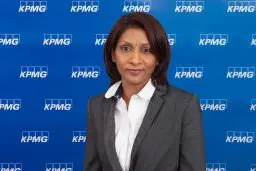PHOTO
KPMG survey cites hurdles in shaping boardroom skills and diversity for company's future needs
Bahrain, 27 June 2016
Three-quarters of directors say the alignment of board talent with the company's long-term strategy is a critical challenge for their board, and three in five cite a need for greater diversity of backgrounds and viewpoints on the board, according to a global survey by KPMG's Audit Committee Institute. Whilst most of the responses from Bahrain were consistent with the global trends; Directors in Bahrain scored the highest percentages reporting "Little/no discussion" when it came to Boards discussing succession planning. . Globally, survey respondents also cite significant barriers to refining the board's makeup, from finding directors with the right mix of skills and overcoming "status quo" thinking to lack of formal succession plans, again, both top issues for Bahrain.
"There is no doubt in the fact that a business's long-term strategy & success hinges heavily on having the right talent and skills set in the boardroom" said Jeyapriya Partiban, Partner and Head of Risk Consulting at KPMG Fakhro in Bahrain. "But to achieve this, businesses will definitely to take a more active approach towards building a diverse, experienced and skilled board. Given the current trend in Bahrain around the lack of formal succession planning, we need to recognize and highlight the best practices within the market, and help facilitate better processes/ frameworks for all businesses to embrace the concept. This is even more critical for us, given that our market has a significant number of family run businesses, and succession planning is a crucial success factor within family governance."
To better understand how directors are thinking about the mix of skills, backgrounds, experiences, and perspectives in the boardroom--and tools and approaches to achieve the right mix--KPMG surveyed more than 2,300 directors and senior executives across 46 countries including Bahrain. Directors see significant room to refresh or refine the board's makeup: only 36 percent said they are "satisfied," and 49 percent "somewhat satisfied" that their board has the right combination of skills, background, and experiences to probe management's strategic assumptions. Directors in Bahrain are slightly more optimistic about this with 38 percent being "satisfied" and 57 percent being "somewhat satisfied". The survey also identifies key challenges or barriers to building high-performing boards, as well as steps boards are taking to overcome these hurdles and position themselves as strategic assets for their companies.
While the views and practices related to board composition vary by country (as detailed in the survey report available in the link attached here), key global trends include:
· Board composition--and alignment with strategy--is a key priority. Survey respondents identified several reasons for the intense focus on board composition, including the need for directors with an understanding of the competitive environment, greater diversity of viewpoints and backgrounds, and understanding the pace of technology change and the potential disruptors of the company's business model.
Significant barriers exist to building a high-performing board. The barrier most frequently cited by survey respondents was "finding directors with both general business experience and specific expertise needed by the company" (69 percent globally and 76 percent in Bahrain). Identifying the board's future talent needs ranked second globally (55 percent), followed by resistance to change due to "status quo" thinking (43 percent). The trend in Bahrain however was slightly different. "Resistance to change due to 'status quo' thinking" ranked second (57 percent) followed by "Board culture that does not encourage questioning and open discussion" (48 percent)
· Despite wide recognition of the importance of succession planning in achieving optimal board composition, many boards lack a formal succession plan. While the vast majority of survey respondents said that a formal board succession plan is a key mechanism to achieving the right board composition, only 31 percent reported having either a "formal succession plan in place that aligned with the company's future needs" (14 percent), or "robust discussions and succession planning in process" (17 percent). In Bahrain, this is significantly more concerning with only 14 percent reporting that there is a formal succession plan in place and none of the respondents indicating that they have "Robust board discussion, succession planning in process."
To read the full report titled "building a great board" please visit our website.
- Ends-
About KPMG's Audit Committee Institutes
KPMG's Audit Committee Institutes (ACI) champion outstanding corporate governance to help drive long-term corporate value and enhance investor confidence. ACI engages with directors and business leaders across 35 countries, delivering actionable thought leadership on risk and strategy, talent and technology, financial reporting and audit quality, and more.
About KPMG
KPMG in Bahrain, is member of a global network of professional firms providing Audit, Tax and Advisory services. KPMG operates in 155 countries and has more than 174,000 people working in member firms around the world. The independent member firms of the KPMG network are affiliated with KPMG International Cooperative ("KPMG International"), a Swiss entity. Each KPMG firm is a legally distinct and separate entity and describes itself as such.
For further information, contact:
Afrah Faraj - Marketing Manager
KPMG in Bahrain
afaraj@kpmg.com
© Press Release 2016




















